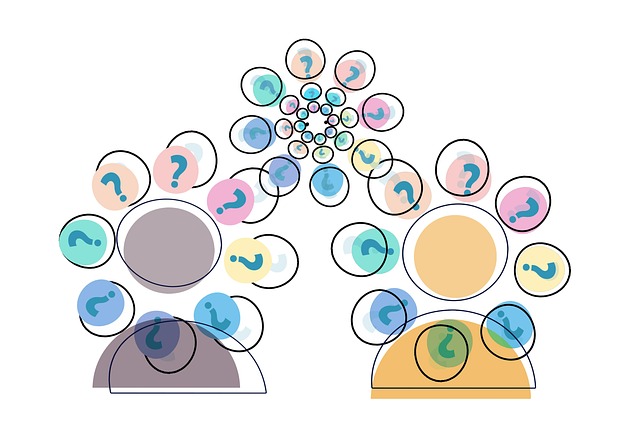Co-parenting mediation is a structured yet flexible process, facilitated by trained professionals, that helps separated or divorcing parents navigate child custody arrangements. It encourages open communication, joint decision-making, and personalized parenting schedules tailored to children's best interests. Through mediation, parents gain tools for conflict resolution, consistent routines, and healthy co-parenting partnerships, ensuring a smoother transition during life-changing events. This approach minimizes legal disputes, promotes emotional well-being, and fosters stability for children caught in parental disputes.
“Unwinding complex child custody matters through co-parenting mediation offers a collaborative approach, fostering healthier relationships between separated or divorced parents. This article guides you through the process, from understanding its benefits to the role of mediators in facilitating communication and resolving conflicts. We explore how customized parenting schedules are created, ensuring a balance that meets both parental needs and child welfare. Furthermore, we delve into the legal aspects of drafting custody agreements and strategies for building a solid co-parenting foundation.”
- Understanding Co-Parenting Mediation: A Safe Space for Collaborative Decision-Making
- The Role of a Mediator in Facilitating Communication and Resolving Conflicts
- Creating Customized Parenting Schedules: Balancing Parental Time and Child Needs
- Legal Aspects: Drafting Custody Agreements to Meet Legal Requirements
- Building a Strong Co-Parenting Foundation for Long-Term Success
- The Impact of Mediation on Children: Promoting Stability and Positive Relationships
Understanding Co-Parenting Mediation: A Safe Space for Collaborative Decision-Making

Co-parenting mediation offers a structured yet flexible framework for separated or divorcing parents to navigate their parenting arrangements. It is a collaborative process facilitated by a trained professional, creating an emotionally safe separation environment. This safe space encourages open communication and active participation from both parents, ensuring that decisions regarding custody, visitation, and support are made jointly, with the best interests of the child at the forefront.
Through co-parenting mediation, parents gain valuable tools and insights to manage their relationship post-separation. They learn effective strategies for resolving conflicts, establishing consistent routines, and fostering a healthy parent-child connection. Separation support services like mediation prepare parents for the challenges ahead, offering not just legal guidance but also emotional support, ensuring a smoother transition for both parents and children during this life-changing event.
The Role of a Mediator in Facilitating Communication and Resolving Conflicts

In the complex landscape of child custody disputes, a mediator plays a pivotal role in guiding parents towards harmonious co-parenting. These professionals are trained to facilitate open communication, creating an emotionally safe space for couples to express their concerns and work through differences. By encouraging active listening and mutual understanding, mediators help resolve conflicts that often arise during separations or divorces. The process involves collaborative problem-solving, where parents jointly create parenting schedules and legal agreements tailored to their children’s best interests.
A mediation preparation coach can assist parents in navigating the emotional aspects of separation, offering strategies for effective communication. This support ensures that discussions remain constructive, allowing couples to focus on the future and forge lasting co-parenting solutions. Ultimately, these mediation services aim to minimize conflict, foster a cooperative environment, and provide the necessary tools for successful long-term co-parenting partnerships.
Creating Customized Parenting Schedules: Balancing Parental Time and Child Needs

Creating Customized Parenting Schedules involves a delicate balance between parental time and child needs. Through co-parenting mediation, parents work collaboratively with a trained professional to develop schedules that meet both their individual needs and those of their children. This process considers factors such as school routines, extracurricular activities, and emotional well-being, ensuring each child receives consistent care and stability.
A skilled mediation preparation coach guides parents through this journey, helping them navigate the complexities of emotionally safe separation. These professionals offer invaluable support services, facilitating open communication and fostering a cooperative atmosphere. By focusing on long-term co-parenting solutions rather than immediate disputes, mediation prepares parents to maintain healthy relationships with their children, even after separation.
Legal Aspects: Drafting Custody Agreements to Meet Legal Requirements

When navigating the complex landscape of child custody, having a solid legal foundation is paramount. Co-parenting mediation services play a crucial role in ensuring that all agreements meet the stringent legal requirements set forth by family courts. Skilled mediators guide parents through the process of drafting comprehensive custody agreements, taking into account factors like children’s best interests, visitation schedules, and financial arrangements.
Through mediation, parents can collaborate on creating structured plans for shared custody and co-parenting, fostering an emotionally safe separation. This proactive approach not only minimizes legal disputes but also equips parents with the tools needed to maintain a healthy relationship for their children’s well-being. Additionally, many mediators offer preparation coaching and divorce confidence coaching to support individuals in managing the emotional aspects of the transition, ensuring everyone involved can move forward with resilience.
Building a Strong Co-Parenting Foundation for Long-Term Success

In the aftermath of a divorce or separation, establishing a solid co-parenting foundation is paramount for the well-being of the children and the long-term success of the co-parenting relationship. Co-parenting mediation offers a structured approach to help separated parents navigate this challenging period. Through professional guidance, mediation facilitates open communication, fostering an environment where both parents can express their needs, concerns, and aspirations for their children’s future without judgment.
This process empowers parents to create parenting schedules that are in the best interest of the child, ensuring a sense of stability and continuity. Furthermore, co-parenting mediation encourages the development of mutually agreeable legal custody agreements, providing clarity and reducing potential conflicts. By prioritizing emotionally safe separation support services and divorce confidence coaching, parents can build resilience, strengthen their decision-making skills, and cultivate a collaborative mindset that is essential for effective co-parenting in the long term.
The Impact of Mediation on Children: Promoting Stability and Positive Relationships

Child custody mediation has a profound impact on fostering stability and positive relationships for children involved in parental disputes. By utilizing co-parenting mediation services, parents can navigate their differences constructively, ensuring their kids remain at the center of the decision-making process. This approach promotes a sense of security and continuity in a child’s life, which is crucial during times of transition.
Effective mediation encourages open communication and mutual understanding between separated or divorcing parents. It equips them with the skills to create tailored parenting schedules that accommodate each parent’s role while minimizing disruption. Moreover, mediation prepares parents for long-term co-parenting, helping them develop strategies to manage conflicts and maintain a healthy relationship for their children’s sake. This proactive approach can significantly enhance the overall well-being and resilience of children facing parental separation or divorce, giving them the confidence to thrive in a stable, nurturing environment.
